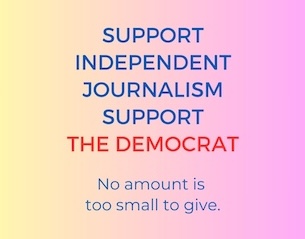- More
- Why India Has A Love-Hate Relationship With Cryptocurrency
Why India Has A Love-Hate Relationship With Cryptocurrency
The value of one Bitcoin, the first and the largest cryptocurrency, is hovering around Rs 27 lakh. Bitcoin and other offerings in its class are seen as representing a volatile asset whose prices have gone through many ups and downs since they started appearing on the scene from 2009 onwards. Pundits may have predicted that
The value of one Bitcoin, the first and the largest cryptocurrency, is hovering around Rs 27 lakh. Bitcoin and other offerings in its class are seen as representing a volatile asset whose prices have gone through many ups and downs since they started appearing on the scene from 2009 onwards. Pundits may have predicted that cryptocurrencies are doomed, but they have proven to be surprisingly resilient and keep finding support from across the spectrum of business and finance with Tesla owner Elon Musk being a well-known enthusiast.
India has been generally seen as being slow on crypto, but the country can now point to its first homegrown crypto billionaires. And, recently, an RBI notice asking banks to cater to crypto players has been met with cheer.
What Was The RBI Notice All About?
In March last year, the Supreme Court had struck down a 2018 circular by the Reserve Bank of India (RBI) to banks and financial institutions saying they should desist from facilitating transactions involving cryptocurrencies. Petitioners had told the apex court that though they were not banned in India, the guidance from the central bank had hit the cryptocurrency market in India.
But it seems that several private and public banks kept discouraging their customers from dealing in cryptocurrencies, citing the original RBI circular. That led the central bank to clarify this week that since the Supreme Court had ruled against it, banks cannot cite that the circular to deny services for cryptocurrency-related transactions. “In view of the order of the Hon’ble Supreme Court, the circular is no longer valid from the date of the Supreme Court judgement, and therefore cannot be cited or quoted from,” RBI said.
But Aren’t Governments Wary About Cryptocurrencies?
The digital architecture called blockchain on which cryptocurrencies stand are designed to do away with the need for a central bank to monitor and validate transactions. These functions are fulfilled for cryptocurrencies by the blockchain technology through what is known as a decentralised ledger system. Clearly then, the rise of cryptocurrencies is a challenge to the conventional banking system.
No wonder, then, that most governments and central banks view cryptocurrencies with suspicion. The 2018 RBI circular had warned banks and other financial institutions against “providing any service in relation to virtual currencies, including those of transfer or receipt of money in accounts relating to the purchase or sale of virtual currencies”.
The Centre has looked at banning cryptocurrencies but a draft bill to that effect is yet to clear Parliament. According to a Reuters report in March this year, the bill spells out “one of the world’s strictest policies against cryptocurrencies” and would criminalise possession, issuance, mining and trade and transfer of crypto-assets. If the bill is cleared, India will become the first major economy to make holding cryptocurrency illegal.
More importantly, RBI has itself said that it is working on launching its own digital currency. “Central bank digital currency is a work in progress. The RBI team is working on it, technology side and procedural side… how it will be launched and rolled out,” RBI Governor Shaktikanta Das has said.
What’s The Status Of Cryptocurrency Investments In India?
All this means that investors have since seen positive signs in the government’s approach to cryptocurrency with hopes that “authorities might go easier on the booming market”. Per industry estimates, an approximate 8 million Indian investors have made investments worth $1.4 billion in cryptocurrencies.
Nischal Shetty, the CEO of WazirX, reportedly the largest crypto-exchange in India, told News18 that a ban on cryptocurrencies was “unlikely”. “Our finance minister herself has called for a ‘calibrated approach’ to cryptocurrencies in India, and given that we have over 1.5 crore crypto users in the country contributing over $2 billion to our economy, it is unlikely that cryptocurrencies will be banned in India,” Shetty said.
Meanwhile, an Indian trio is being hailed as the country’s first crypto billionaires after their cryptocurrency, called Matic, zoomed in value from $26 million in 2019 to over $14 billion. Jaynti Kanani, Sandeep Nailwal and Anurag Arjun, the co-founders of Polygon (earlier known as Matic) founded the company as a blockchain scalability platform in 2017. What it does is to help boost transactions on Ethereum, which is second-most valuable cryptocurrency after Bitcoin.
How To Buy Cryptocurrency?
Cryptocurrencies can be bought and sold via exchanges set up for the purpose. One can login online or download an app to trade in cryptocurrency. Apart from WazirX, other popular Indian cryptocurrency exchanges are Zebpay, Coinswitch Kuber, etc. Normally, a user has to sign up on such platforms and create a wallet to start trading in cryptocurrency.
Read all the Latest News, Breaking News and Coronavirus News here











